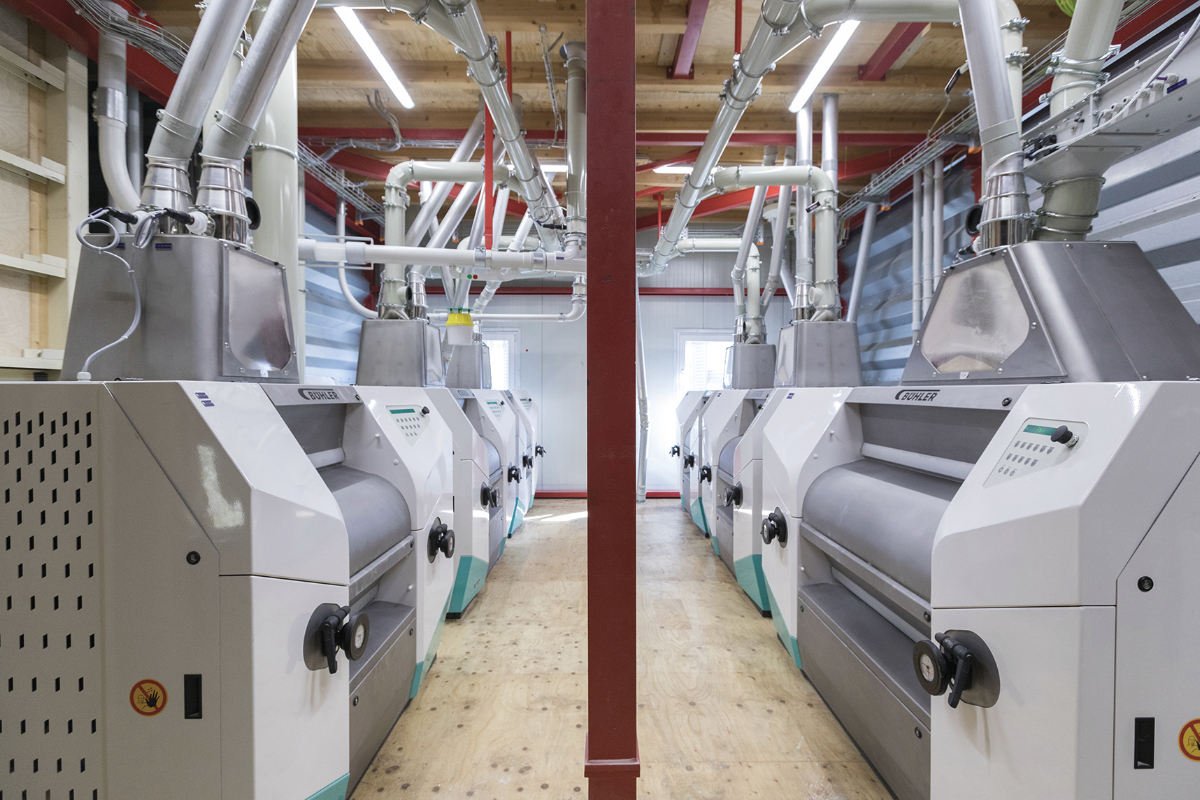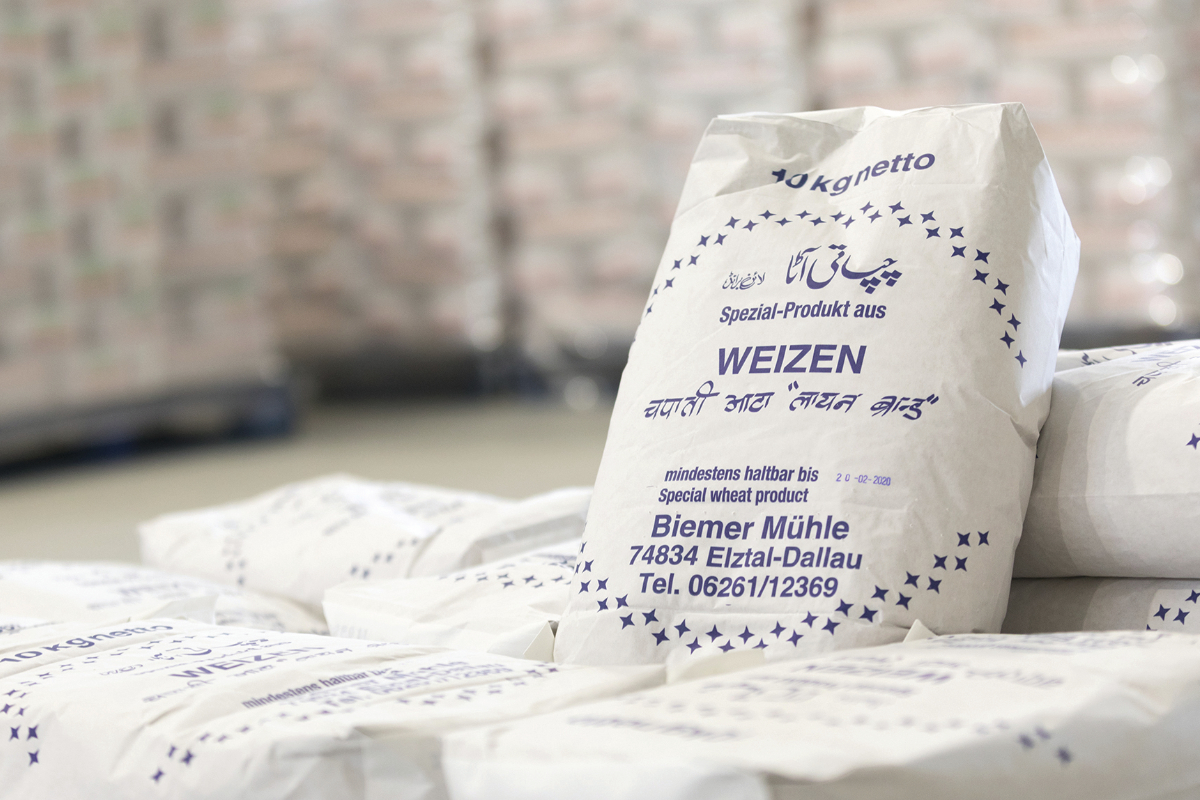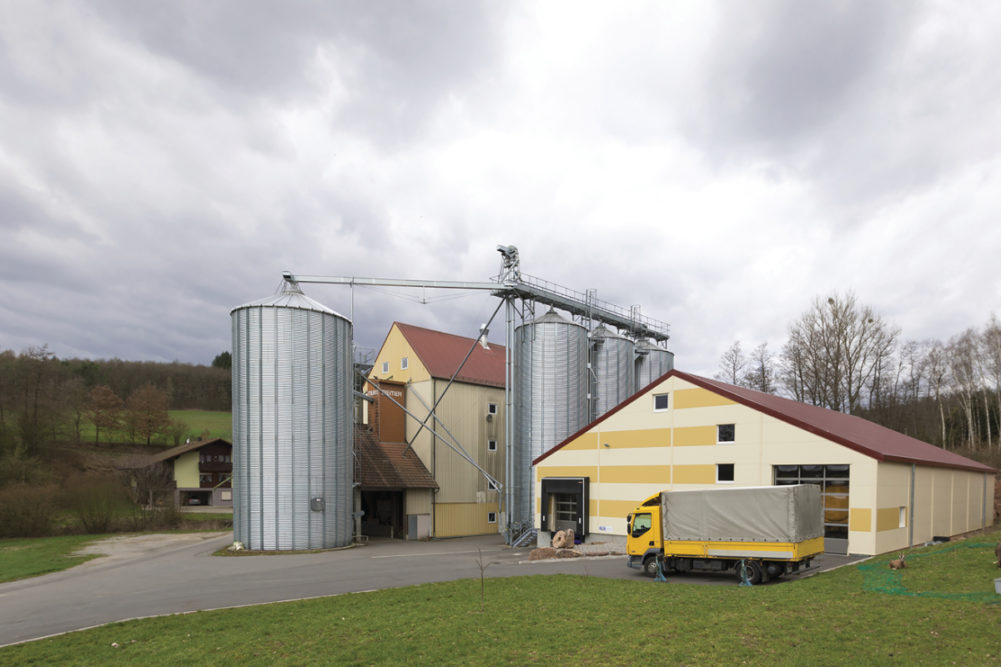The Biemer Mühle flour mill, located in a rustic setting near the small town of Elztal, Germany, has been in the Biemer family nearly 200 years, and the location has an even longer milling history, going back 350 years.
“The mill was bought by my ancestors in 1830,” Albert Biemer said.
His daughter, Ina, a master miller, has worked tirelessly to ensure that the family’s milling tradition will continue into the seventh generation.
But about 35 years ago, there was legitimate concern that the business would not make it beyond the sixth generation. After being in the flour milling business for nearly two centuries, the Biemer family stood at a crossroads, as the consolidating German market dictated that they either had to find a niche product to offer the European market or exit the business.
The competition in the German market in the early 1980s had become fierce. Bakeries were consolidating, and it was becoming difficult to keep pace with the prices offered by the larger flour mills.
Albert Biemer recalled how his father felt there was no choice but to close the mill. But Albert Biemer’s passion for milling – and the desire to keep the family business going – led him to seek an alternative to producing the same type of flour as their larger competitors.
A serendipitous moment came to him after meeting a guard from a nearby barracks who originally hailed from Pakistan. The man told Albert Biemer he was used to buying flour to make his flatbread from an Asian greengrocer three hours away in Frankfurt. He wanted to find a locally produced flour that was similar and was thrilled when Albert Biemer presented him with a test sample of whole meal flour from Biemer Mühle.
“He was so thrilled with the quality that he told his greengrocer in distant Frankfurt about it,” Albert Biemer said.
Albert Biemer decided to visit the merchant and bring back a sample in the trunk of his car. After the visit, Albert Biemer dedicated himself to developing this niche product. It was Good Friday when he began remodeling his mill. His flour was too fine and wasn’t even close to his sample. He returned to Frankfurt many times to have the greengrocer test his results, but the feedback was usually “getting close.”
Finally, after 10 years, and plenty of experimentation, he finally discovered the right formula. Albert Biemer’s perseverance and perfectionism were rewarded, as the company’s chapati flour “Made in Elztal” became popular in both small and large Asian stores.
Biemer’s company-saving niche product, traditional chapati flour, is used to make an unleavened Indian flatbread. It is a part of almost every meal in Northern India and Pakistan. It is often served with lentils, cumin and coriander. When Indians migrated to the African continent, it became known there as well. The flatbread often serves as a type of spoon when eating. There is also chapati flour made of barley, millet and wheat, or just pure wholemeal flour.
Biemer turns to Bühler

Soon thereafter, Albert Biemer decided to expand the company’s daily milling production capacity from 5 tonnes to 15 tonnes, but this needed corresponding upkeep. The family members and assistants worked in three shifts to meet demand.
The price for this newfound success was zero free time, which is not a sustainable way to work in the long run. Investment needed to be made. Albert Biemer again took a sample of chapati flour in the trunk of his car, only this time to Bühler AG in Uzwil, Switzerland. He told the Swiss milling equipment manufacturer that it was very important to him to not make any compromises with the quality when increasing his efficiency.
Bühler came back with an offer for a total mill modernization. The small mill was equipped with a WinCos plant automation system — a tool for planning production and controlling yield that is used by large mills.
Albert Biemer said it is now hard to think of the mill without the touch PC used for controlling the entire mill. Bühler also helped optimize the cleaning system and the grinding. The latter is done with the Diorit roller mill MDDY, which is known for its grinding efficiency and reliability.
Today, Albert Biemer produces the same volumes as previously but only needs 10 hours a day to achieve it. In return, he now has a family life again.
“We expanded the existing mill, cleared the building and put in a brand-new Bühler mill,” he said. “The old system is out and a whole new system is in. We are now up to date. The cleaning system was optimized, the grinding was completely modernized and the whole system automated with the WinCos control.”
Albert Biemer said Bühler presented him with an excellent flowsheet for his chapati flour product.
“I went to Uzwil (Bühler’s headquarters) and we looked at what was possible with today’s technology to produce the desired product,” he said. “What we were shown on site convinced us. The new mill helps us to be innovative and makes our work easier.”
He said the new state-of-the-art equipment has made his milling operation far more efficient and the increased automation took a burden off his four full-time and three part-time employees.
The company sources most of its wheat within a 50-kilometer radius of the mill, with the remainder coming from other wheat farmers throughout Germany.
“It is very rare that we go farther outside that radius,” he said. “Only if we don’t get the quality we need in the area do we have to buy outside of there.”
Biemer Mühle’s wheat storage capacity is around 2,000 tonnes.
“We don’t actually have very large flour storage, but that’s not a problem because the flour we produce always goes out quickly,” Albert Biemer said. “We have 50 flour storages here, from about 50 tonnes to about 120 tonnes. The chapati flour is all packaged in 5-, 10-, and 25-kilogram bags.”
The packaging takes place automatically via a fully automated packaging station with a palletizing robot, he said.
Serving the refugee population

Biemer Mühle is currently exporting about 28% of its production volume, mostly to European cities.
“Most of our flour goes to the big cities such as Berlin, Hamburg, Warsaw, Copenhagen, Paris and Bologna,” he said. “The big cities there are the focal point of the wholesalers.”
Albert Biemer appreciates the direct contact with his small Asian shopkeepers in Germany, which is why he still likes to deliver the chapati flour to many of them personally.
Biemer Mühle also is targeting a growing market of refugees from Afghanistan and other Islamic countries who have migrated to Europe.
“We want to take care of these people,” Albert Biemer said. “We want to take care of people from countries like Afghanistan, India, Pakistan and Sri Lanka. That is our goal.
“I think we have the best product on the market in Europe in this segment. I think we make the best flour for chapati bread.”
Germany’s milling industry keeps consolidating
According to the European Flour Milling Association, Germany has around 200 mills, and the number has been falling in recent years. For example, there were 317 mills in 2007. Of the current total, 29 have a production capacity of over 100,000 tonnes (wheat equivalent) per year.
The European Flour Milling Association’s figures are based on official statistics that ignore mills with an annual capacity of less than 1,000 tonnes. The industry association Verband Deutscher Mühlen put the total as of 2019 at 550 mills, 196 of which have a capacity of over 1,000 tonnes a year. The association highlighted the progressive consolidation of the industry by pointing out that there were almost 19,000 mills in the country in 1950, a number that fell to around 2,500 by 1980, before falling again to its current level.
The German industry body put the total amount of grain milled in Germany at some 8.9 million tonnes, including 7.7 million of wheat and 800,000 tonnes of rye, along with 400,000 tonnes of durum. The output is around 6.2 million tonnes of wheat flour, some 700,000 tonnes of rye flour and about 300,000 tonnes of durum products.
The industry is somewhat concentrated in the southern region of Germany, notably Bavaria, Baden-Württemberg, Rheinland-Palatinate and Saarland. The German association pointed out that in the south — Bavaria and Baden-Württemberg — each mill serves 173,637 inhabitants on average. In the north — Lower Saxony, Bremen, Schleswig-Holstein, Hamburg — the average is one mill per 551,155 residents.






